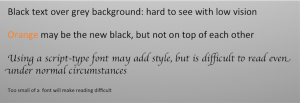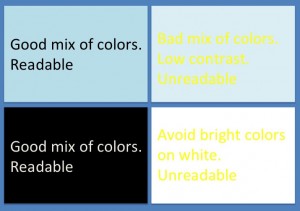UNH offers its first ever MOOC on the NH Primary
By Tim Drugan-Eppich
Staff Writer
Primary season is upon us. The constant talk of Donald Trump, Bernie Sanders, and the issues plaguing our nation are evidence of that. But how much does anyone really know about the primary? Be it the history, the process itself or the role that New Hampshire plays in the decision of what candidate should represent each party, most voters try to be aware of what is happening in the current races. However this year the public will be treated with the opportunity to learn all they could possibly hope to learn and more.
“FIRST!” is a Massive Open Online Course, or a MOOC, that is free for anyone who is interested. With a soft opening on Oct. 15, the course begins on Oct. 19, and will run for about 6 weeks. The faces of the course are two associate professors in the department of political science. Andrew Smith and Dante Scala bring a tremendous amount of combined experience in the hope to better educate the electorate on the state’s political primary process.
“We want to give our audience the historical context that they can use in their observation over the next two months,” Scala said. “We want them to come away with a more discerning eye.”
Also there will be some introspection on the students’ part.
“We hope to debunk but we won’t the myth that New Hampshire voters are more informed than the average voter,” Smith said. “They’re not.”
This is a problem worth solving because Smith mentioned that except for 2008, New Hampshire usually has had a higher voter turnout for the primary than any other state. Not only that, Scala said New Hampshire voters are unique.
“New Hampshire Republicans consider themselves Republicans,” said Scala. “But they are actually a much more moderate brand (than other areas of the country).”
The course will also illustrate how different the primary election is from the general election. Professor Scala said that because of the similarities between candidates on the primary level, the choice becomes slightly superficial.
“Do I want an older version or younger version of the same type of Republican?” Scala said. “Primaries are about who looks like a leader, who looks good on TV.”
The course is set up in a series of modules. Each week offers video lectures, quizzes, readings and discussion forums. The discussion forums opened before the class technically began, and students enrolled in the course quickly began taking part in the discussion.
“120 people are participating in a discussion for a class that hasn’t even begun yet,” Smith said.
Included in managing the discussion forums was the producer of the project, Meg Heckman, a lecturer teaching journalism in the English Department. Heckman said that because this is such new idea, the students’ response would have an impact on the flow of the course.
“It will be interesting to see how we will keep up with their conversations,” she said. “I’m looking forward to the challenge that will bring.”
And as this is a new platform for learning, there were obstacles in the assembly.
“The challenge we had was how to bring a face-to-face feel to an online platform,” Heckman said. “Translating (the classroom) into a digital environment.”
Because Heckman was tightly linked to the production of the digital platform as well as being a teacher at the university, she felt this class combined those two aspects.
“As a public institution, we’re supposed to help people become smarter, more thoughtful citizens in a democracy,” she said. “There are many tools that can be used to do that. I hope this class demonstrates that technology is one of those tools.”
The course currently has 1,600 students currently enrolled, with those numbers continuing toincrease. But there is no cutoff for enrollment. Smith made it clear that this course would live online even after new material has stopped being added. The benefit, however, of taking part in the course while it is live lends itself to the interpretation by the professors of the current primary as it is happening; a primary that is shaping up to be quite interesting.
“There is no obvious candidate for the Republican party,” Smith said. “Usually they come in with an established frontrunner.”
Live students will be treated to their insights about the happenings in real time. For instance, Smith said that while the media was buzzing about Clinton’s performance at the first Democratic debate, it was one that was on Sanders’ terms.
“More often than not, the polls are wrong,” Smith said. “If they ever get it right, it is more by luck than anything. 35 to 45 percent of primary voters decide who they will vote for in the last three days before the election. 15 to 20 percent decide on election day. Polls are just reflecting media buzz.”
“I think the establishment has been fooled and fooled again by Donald Trump and Bernie Sanders,” Scala said. “There is the media filter, and then there is how the public sees it.”
Both professors made it clear that the class will give back what the student puts into it.


















